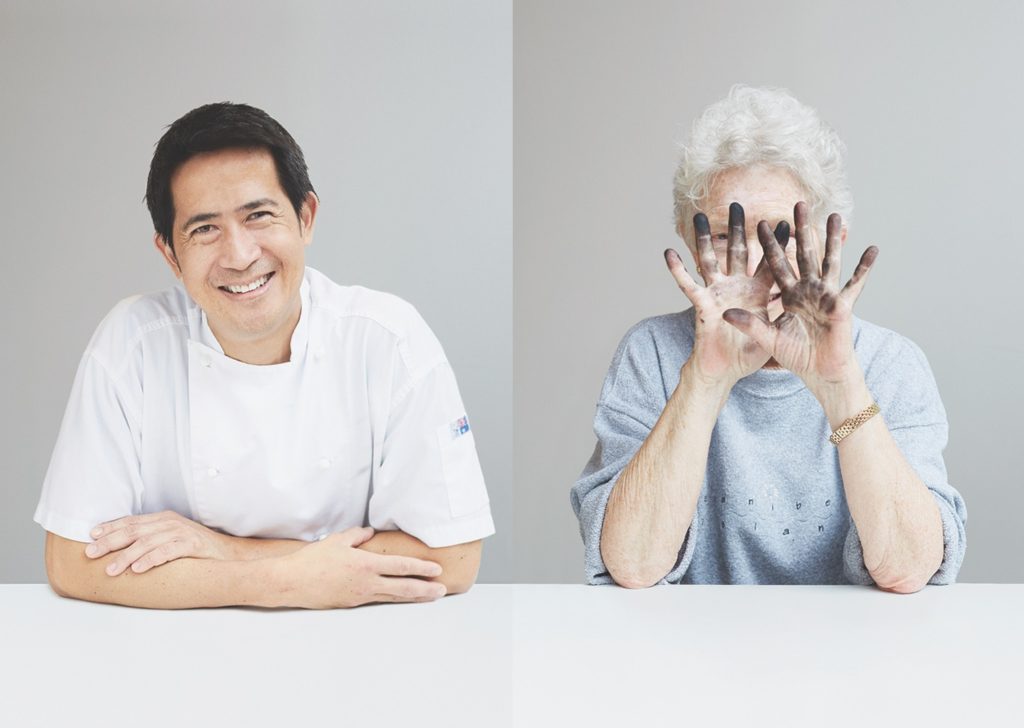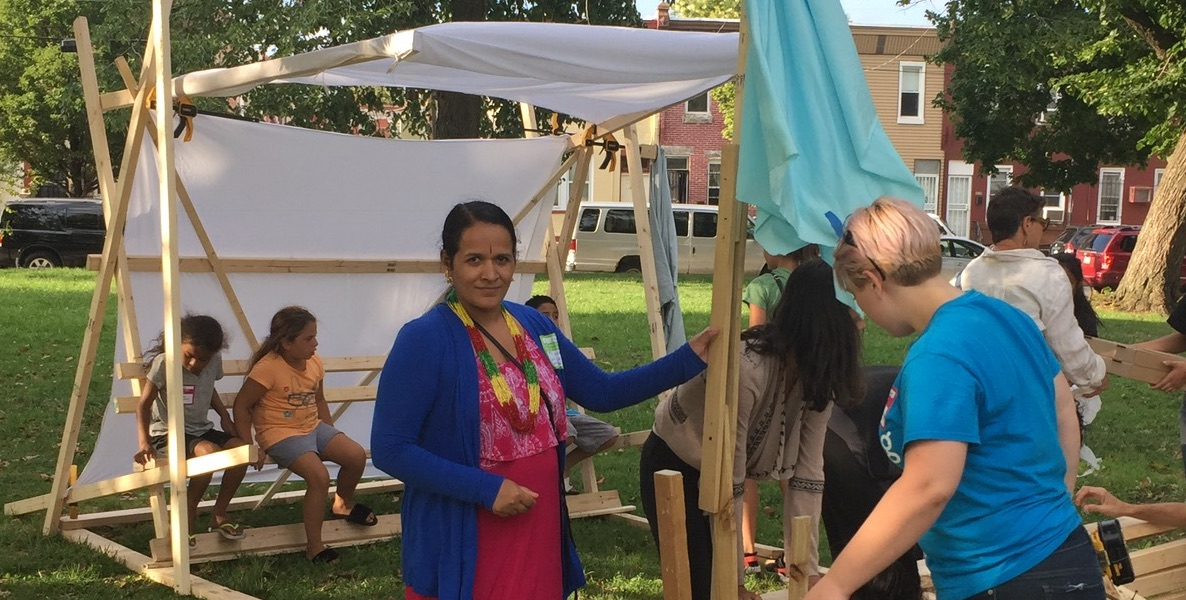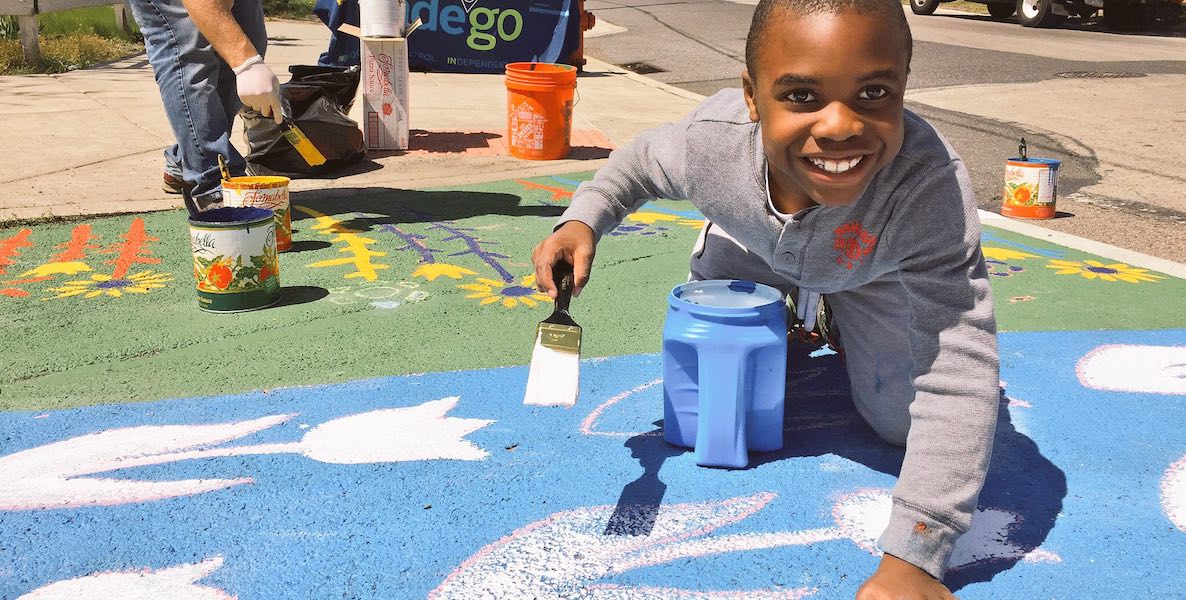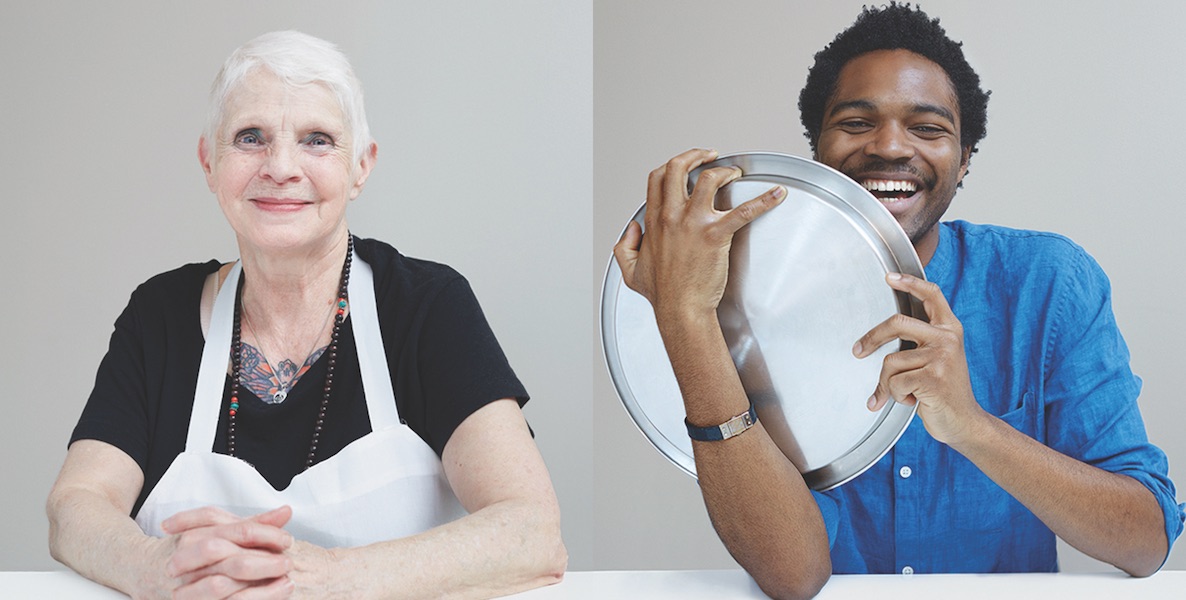Don’t ask Frieda Café employees for the WiFi password. In fact, it’s best if you leave your electronic devices at home and instead bring along your favorite book, or a friend, or drop in for a bridge lesson in the white-walled café settled unassumingly across from the Delaware River.
Frieda, opened in November of 2015 by Philly transplants Thomas Steinborn and David Wong, is intentionally old school, a space created to encourage people from all walks of life to sit down and simply enjoy each other—or take a French lesson, or join a knitting circle, or play a board game with an actual human rather than a computer. Old school, yes; also a radical idea these days.
Steinborn and Wong, business partners who met in Australia, describe their cafe as “a social start-up business with the goal to (re)connect generations.” It’s named for Steinborn’s grandmother, and its logo depicts her signature in what appears to be a pixelated font, like an old video game or glitchy screen; it also resembles a cross-stitch, an interpretation that amplifies Freida’s message to combine the old and the new. The story doesn’t end with grandma Frieda, either. Steinborn’s mother had recently retired, and at age 60, it wasn’t quite clear what life looked like for her. Steinborn knew that this wasn’t just the case for his mother.
Frieda is intentionally old school, a space created to encourage people from all walks of life to sit down and simply enjoy each other. Old school, yes; also a radical idea these days.
“All these little pieces popped up and suddenly this whole idea was created,” he says. “We asked could we create a space for people of all ages that could transform into certain things for certain people at a certain time? We wanted to have this place where people of all ages, of all backgrounds, cultures, different levels of society could all be together.”
So far, it has. Walk into the minimally designed space and you’ll be greeted by one of the Frieda employees, likely Clementina Caruso, 89, who comes in about four days a week. Her daughter, Gail, 70, who shows off her colorful butterfly chest tattoo (with more to come over the winter season), makes jam and has been said to have the perfect hands and perfect patience to roll the button cookies in the kitchen.
“Fifteen minutes after coming in here for my shift it’s like all the cares in the world go away,” says Gail, one of the few employees who had past experience. “This is not like a restaurant where you just come in and eat. You come in, you talk to people, you socialize, you have fun. I call it my Zen place.”
There is a thoughtfulness that Steinborn and Wong infuse into the Frieda environment, with a deliberate emphasis on respect for all. They pay their baking team above minimum wage, and work to balance quality of product with quality of life.
“Suddenly it’s very interesting that just by offering the space and trying to have a respectful environment people actually—and I want to point out people of all ages—actually use it and like it,” Steinborn says.

Wong—a Le Cordon Bleu and Ecole Gregoire Ferrandi trained chef—prepares the food. He previously lived and worked in New York in the restaurant business, and moved to Philly four years ago to support Frieda. Steinborn previously worked in creative marketing and design.
Wong recognizes that running a food business alone is a challenge no matter what, but when you add different components—a social community space, a product business, a mission to make room for seniors—it adds a layer of complication. “The reality is that many of our employees are not professionals, but they’re looking for something to do and to add a bit of income,” Wong says.
When training and hiring, Wong took into account things like dexterity for those dealing with arthritis, or how long the task like baking cookies may take, since seniors working at the restaurant are only required to be on their feet for three hours at a time. Frieda makes homemade jams without pectin, a starch that gives jellies and jams their structure, instead reducing the jam longer to make it thick enough before jarring it. This is a five-hour process but for employees whose shifts are three hours, Wong needed to figure out who would wrap up the task. It’s an issue, among others, they’re still working to find the best solution for.
![]() On any given day, Frieda feels as much like a multigeneration community center as a cafe in the midst of the city. Resting along the window pane at the front of the cafe are a number of clipboards displaying an upcoming event or activity. One says “Ciao!” with information about how to learn Italian; another offers a game of Backgammon with a note that reads: “If you are a backgammon player and would like to get challenged by people rather than your computer…”
On any given day, Frieda feels as much like a multigeneration community center as a cafe in the midst of the city. Resting along the window pane at the front of the cafe are a number of clipboards displaying an upcoming event or activity. One says “Ciao!” with information about how to learn Italian; another offers a game of Backgammon with a note that reads: “If you are a backgammon player and would like to get challenged by people rather than your computer…”
Most of these started out organically after customers realized the door is wide open for volunteers to run something of their own. Now, it’s not unusual to see older customers sitting across from Millenials, trading stories and knitting tips, passing on the basics of bridge, or just being quiet with each other. It’s something that happens less and less in our world—but perhaps shouldn’t.
A recent study by researchers in Belgium found that from a pool of 1,151 youth ranging from 7 to 16 years old, those who spent time with grandparents or the elderly at least weekly described their experiences as “happy” and that they were less likely to express ageist views. While the study gained a number of new insights about generational connections and experiences, it concluded that the frequency and quality of time spent with the elderly matters in shaping future interactions and opinions. The team at Frieda is committed to making this study an everyday reality.
![]()
As a new resident of Philly, Wong was impressed by the sheer number of 503c nonprofits across the city, of which there are over 8,000. “I’ve never seen anything like it before,” he says. “It speaks to the level of social consciousness that you have among certain foundations and families.”
Nonetheless, Frieda is a for-profit business to avoid needing to raise money endlessly for them to stay afloat. They are not yet profitable, but Wong says they’re making progress and have hit something like a stride; 2018 will be the year they piece it together. They plan to start with small steps, like hiring a business manager to handle the day to day parts of Frieda or focus on marketing and advertising—of which they’ve done almost none.
“The measure of success for Frieda is, first and foremost financial, in order to be sustainable,” Wong says. “And then emotionally important to us and what drives us is the positive social impact.”
For the future of Frieda, Wong hopes to track things like volunteer hours, how many employees are retirees or seniors, and more intangible things like how they might help fight loneliness across all ages. For now, it’s simply a place to visit for a warm meal, a cup of joe and maybe something truly novel: Talking to someone.
Photo: Jorge Monedero





